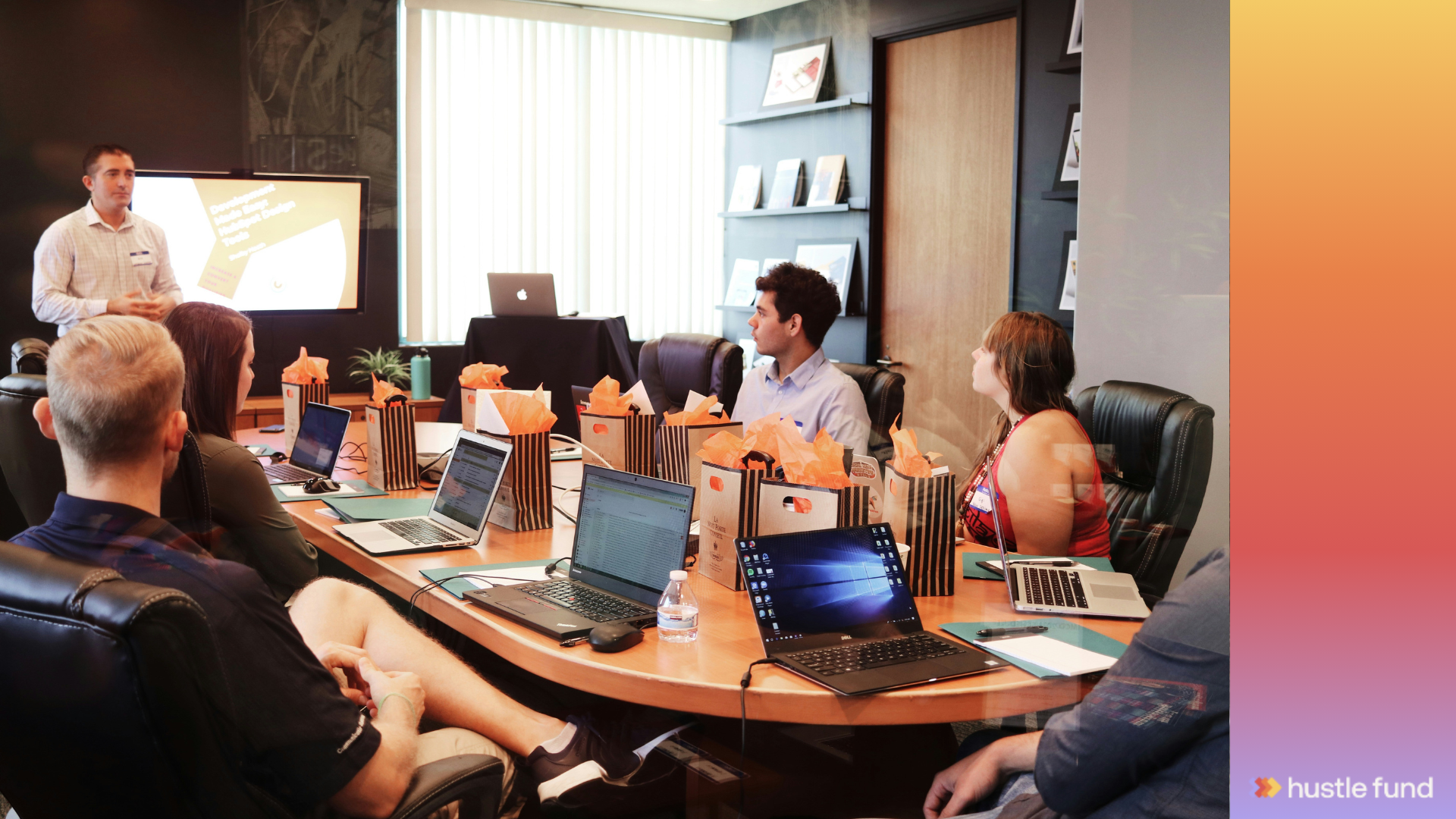dos and don'ts for supporting startup founders on social media
.png)
Brian Nichols is the co-founder of Angel Squad, a community where you’ll learn how to angel invest and get a chance to invest as little as $1k into Hustle Fund's top performing early-stage startups
A few weeks ago, I was scrolling through LinkedIn when I saw an angel investor post: "We just closed our Series A at a $50M valuation!"
I cringed.
You didn’t close the round…the founder did.
Although well-intentioned, social media is a double-edge sword. Used well, it’s leverage. Used poorly, it’s a trust killer.
Let’s dive in to 3 dos and don’ts to maximize it without becoming that investor.
The 3 Dos
1) Offer to amplify (don’t wait to be asked)
Ping your portfolio: "Any launches, wins, or announcements coming up? Send me details the day before."
Ask for the live link, preferred copy, then queue your post and DM relevant contacts to engage.
Organization and proactive support beat waiting to be asked.
2) Write original content about your investments
Share why you invested in specific companies, break down market opportunities you see, or tell the story of how you met founders.
This provides social proof for your portfolio companies and shows your investment thesis in action.
Original content punches above your weight and helps establish your thought leadership in the space.
3) Show you’re human
Occasional personal posts = approachability.
A real voice — not just an announcement engine — builds trust and deal flow.
And keep in mind: authenticity resonates more than polished corporate speak.
The 3 Don’ts
1) Don’t take credit.
Bad: “We raised $20M!”
Good: “Congrats to [Company] on their $20M Series A — thrilled to be a tiny part of the journey.”
One word changes the entire power dynamic.
2) Don’t vent publicly.
Frustrated with a founder?
Text your partner, but never vent on socials.
There’s a perceived power imbalance, and optics always matter.
3) Don't post about divisive topics.
Avoid political takes, industry drama, or hot-button issues that don't relate to your work.
Your platform should serve your founders, not your personal opinions.
Attention is a finite resource — spend it on your portfolio instead of unnecessary debates.
A 60-second pre-post checklist:
- Does this post help a founder (whether that’s distribution, hiring, or credibility)?
- Am I amplifying their voice, not replacing it?
- Is there a clear CTA for the audience to support?
- Would I be proud if the founder read this out loud?
Do good and founders usually reward you
Offering to help founders and actually following through puts you into the top decile of investors (or more, the bar is shockingly low).
By doing this, founders will feel closer to you, share company-specific insights that may not have otherwise surfaced, and your deal flow will compound through referrals.













